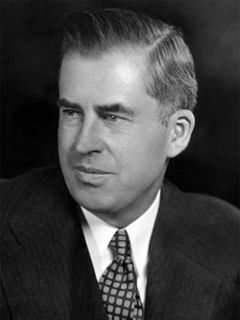A Quote by Allen W. Wood
What Smith and Marx have in common is that they were both philosophers of great vision and perceptiveness, deep humanity, and a sense of social reality that has been lost in the abstractly formalistic economic theories that have dominated the field since the last third of the nineteenth century.
Related Quotes
The two most far-reaching critical theories at the beginning of the latest phase of industrial society were those of Marx and Freud. Marx showed the moving powers and the conflicts in the social-historical process. Freud aimed at the critical uncovering of the inner conflicts. Both worked for the liberation of man, even though Marx's concept was more comprehensive and less time-bound than Freud's.
Given that the nineteenth century was the century of Socialism, of Liberalism, and of Democracy, it does not necessarily follow that the twentieth century must also be a century of Socialism, Liberalism and Democracy: political doctrines pass, but humanity remains, and it may rather be expected that this will be a century of authority ... a century of Fascism. For if the nineteenth century was a century of individualism it may be expected that this will be the century of collectivism and hence the century of the State.
Darwin's theory of evolution is the last of the great nineteenth-century mystery religions. And as we speak it is now following Freudians and Marxism into the Nether regions, and I'm quite sure that Freud, Marx and Darwin are commiserating one with the other in the dark dungeon where discarded gods gather.
In the early period of Left struggles, in the late nineteenth and early twentieth century, there were many different trajectories for the struggle, whether you call it 'syndicalism' or 'anarchism' or, at the time, 'social democracy', eventually 'Communism', these were different theories of struggle. But all of them shared a basic understanding that the people...experience exploitation, they experience oppression, but they're not prepared to rise up.
The notion of "humanity" as a form of transcendence derives, I think, from the conviction that intellectuality possesses an absolute power, from the demand that our best behavior depends on our ability to think abstractly, in terms of a universal rule, about something called humanity, that we need to understand humanity abstractly so that we can act responsibly towards those who represent it.
The reality is that not only were we massively hit in 2008 when the bubble burst, and then we realized how deep the social gap, the economic gap in the world is between the super rich and the poor; also, we realized how impacted the environment has been. So there's been a physical consequence of that.
The great crimes of the twentieth century were committed not by money-grubbing capitalists but by dedicated idealists. Lenin, Stalin, and Hitler were contemptuous of money. The passage from the nineteenth to the twentieth century has been a passage from considerations of money to considerations of power.



































